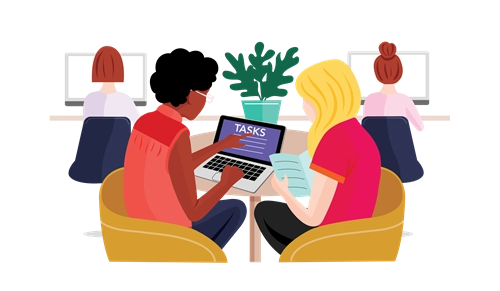Imposter syndrome
Ever feel like you’re a fake, or unworthy? It’s called imposter syndrome, and you’re not alone (oh, and it’s not true!)
‘I can’t deserve this prize, they must have made a mistake …’
Sound familiar? Imposter syndrome alert!
A whopping 70 per cent of people feel insecure and unworthy of their accomplishments, according to Dr Valerie Young, an international expert on the psychological phenomenon called ‘impostor syndrome’. And she says it is more common among women in STEM for a few reasons.
‘In STEM – and other fields like medicine and creative arts – imposter syndrome is more common because the rate of change and advancement is so rapid, no human could ever keep up – but we feel we should.’
‘For women and racial minorities, it’s also about numbers,’ she adds. ‘A sense of belonging fosters confidence. Plus negative gender or racial stereotypes also make you susceptible to impostor syndrome.’
Valerie says imposter syndrome can strike in the early years, with girls often taking constructive feedback more personally than boys.
‘Girls are generally more likely to internalise mistakes and criticism whereas boys and men are more likely to look for reasons outside of themselves. For example, they’ll think, “The teacher didn’t give us enough time to study” or “The other team cheated”,’ says Valerie.
Did you know
70%
of people feel insecure and unworthy of their accomplishments
Sleep on it – and other steps to combat imposter syndrome
Jacinta Sporton, a biomedical researcher and sonographer with Imaging Queensland, says she started experiencing imposter syndrome soon after she was promoted.
‘I was suddenly in a leadership role and I thought I was too junior,’ she says. ‘I almost quit multiple times when people questioned my decisions. I felt constantly judged and it made me think I wasn’t worthy.’
Jacinta has worked hard and stayed upbeat despite these feelings, and she has excelled in her role now for three years.
‘I don’t think I can claim to have overcome imposter syndrome but I have certainly chipped away to a point where I feel I am worthy and doing a good job,’ she says.
‘I have the support of some wonderful colleagues. When I’m really struggling, I always talk myself into “sleeping on it” and things always seem brighter in the morning.’
Valerie recommends talking to others and following these steps to combat imposter syndrome:
- Accept that impostor feelings are normal. Most people have these nagging feelings of fraudulence including doctors, executives and best-selling authors.
- Reframe your thoughts. Be consciously aware of your impostor self-talk and change it.
- Keep going regardless of how you feel. It will take time and effort to change your thoughts but you can’t wait until you feel completely confident to take action.
- Explore the difference you would make if fear was not a factor. This will help you focus on what is important to you and help you move past imposter feelings.
Valerie also has one clear final message:
‘There are people out there who want and deserve to benefit from your knowledge, abilities, and skills. You owe it to yourself, and to all of us, to start acting as bright, capable and powerful as you really are.’











